‘Her eyes were open, but without a soul’: Backpacker wakes from a coma in Melbourne
French backpacker Nataya Demarchio lived a life that many others only dream of until she fell ill in Mildura. When she woke weeks later in a Melbourne hospital, she had lost most of her memory.
VIC News
Don't miss out on the headlines from VIC News. Followed categories will be added to My News.
For three years Nataya Demarchio lived a dream.
Travelling the world with the love of her life, meeting hundreds of people and having adventures few dare imagine. Now, no matter how often she looks at photos from her travels, the experiences are new.
Worse, the 29-year-old who had the world at her feet just three months ago, cannot remember most her life with fiance Bruno Meira — nor anything else for that matter.
“She is upset, but sometimes it is like watching a movie when she watches the pictures and it is always something new,” Bruno says from The Alfred hospital.
“It is complicated. She has memories — for example she recognises faces for 95 per cent of people — but she has difficulty to say their name.
“We have been together eight years and eight months now, but she asks me sometimes how we met.
“She knows me always, but she can’t remember how we met, she can’t remember our travel for the past three years.
“The doctors think she is getting very good physically, but memory from the past …”
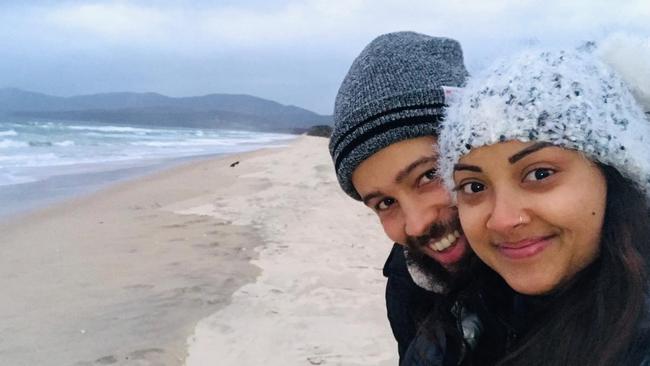
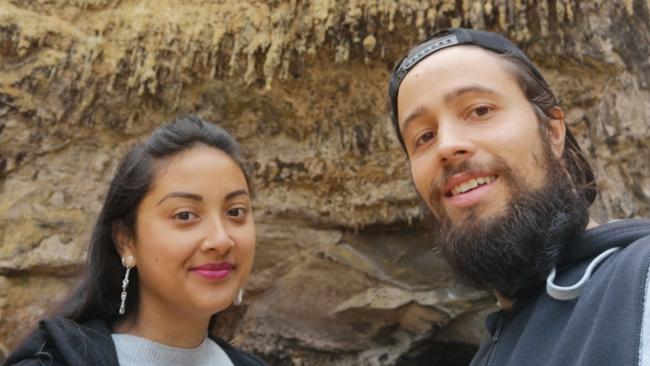
French backpackers Nataya and Bruno first came to Australia in 2016, working on farms and living in a tent Queensland.
After 11 months the couple’s visas were running out and Bruno broke his ribs, so they returned to Paris to reload.
Soon returning down under, they worked and travelled around New Zealand, earning money for adventures through Taiwan, Singapore, Malaysia, Indonesia and New Caledonia.
With a fresh working visa for Australia to start in 2019, Nataya and Bruno arrived in Victoria on February 27 and went to Mildura to pick grapes. Then, in mid-July everything changed.
“We were very happy,” Bruno said.
“When we were working in Mildura on a grapes job. She started to have some fever and she said it was nothing.”
A clinic suspected Nataya had an infection, so blood tests were taken.
She was also prescribed paracetamol and antibiotics to take at home, though she felt too unwell to work for the next three days.
“On July 24 she had an appointment for blood tests but she couldn’t go because me and my friend Victoria, we found her on the floor and she had seizures,” Bruno recalls.
“She was awake, but she was lost with her eyes open.
“With my friend we took her to the car (but) she could not recognise us.
“I brought her to the hospital and she had strong, strong seizures so they realised it was something very bad and got a helicopter to The Alfred hospital in Melbourne.”
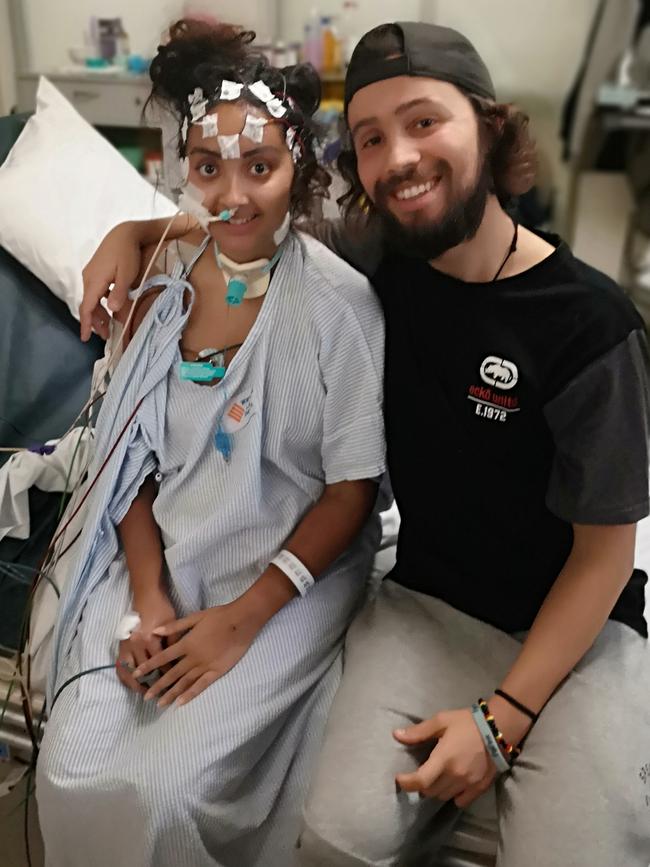
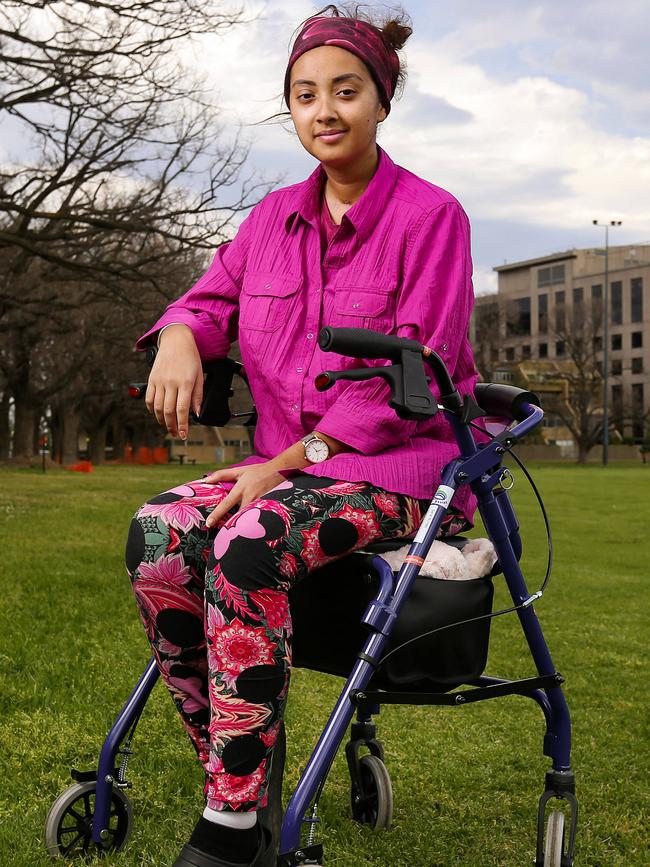
On one hand, Nataya was lucky. Of all the places on earth the Parisian could have been, she was in Victoria — the very place and at the very time the world’s first major study into the condition now attacking her brain was starting.
On the other hand, she was agonisingly unfortunate.
Being in a remote corner of the state meant her condition had deteriorated so much by the time she reached The Alfred it was difficult to diagnose the mysterious condition, or wind back damage already done.
As Nataya lay in a coma, specialists tried test after test to try to find what was wrong.
With Bruno not fluent in English, they used pictures and Google Translate to explain the most baffling medical concepts.
Having no money and facing hospital debts that would eventually top $370,000, the devoted fiance slept on couches in the hospital for the next 10 weeks.
He also taught himself English.
“When she was in a coma she had seizures for more than two weeks,” Bruno said.
“She was in a coma for three weeks and three days, in intensive care for six weeks and three days.
“They tried many things in the beginning, taking fluid from the spine and thinking it was another sickness. It was a bit hard for us.”
Finally, at 3pm on August 17, Nataya woke up.
“She was lost, she was crying and every day she asked the same things,” Bruno said.
“Every day she had her eyes open, but she was not able to recognise that she was her.
“Her eyes were open, but without a soul.”
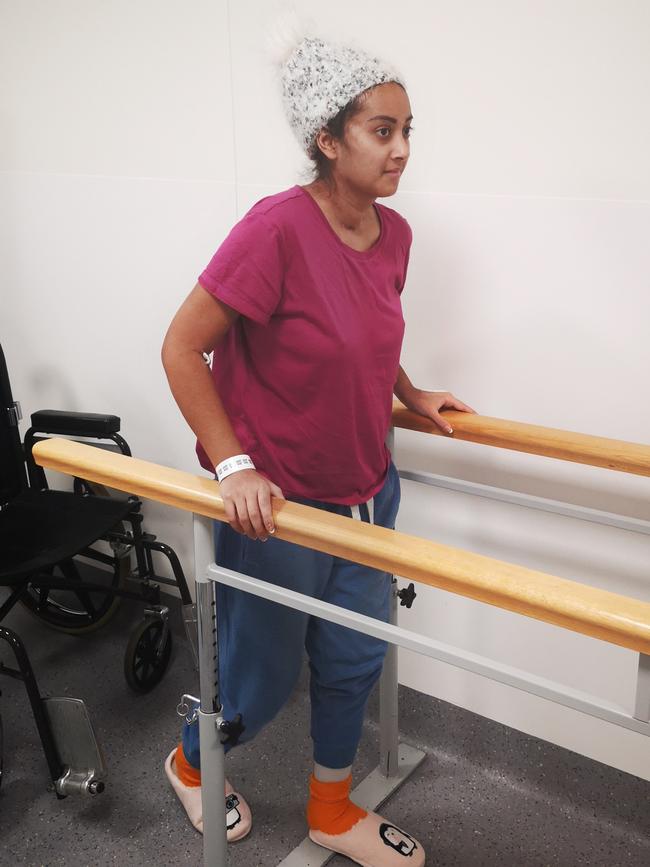
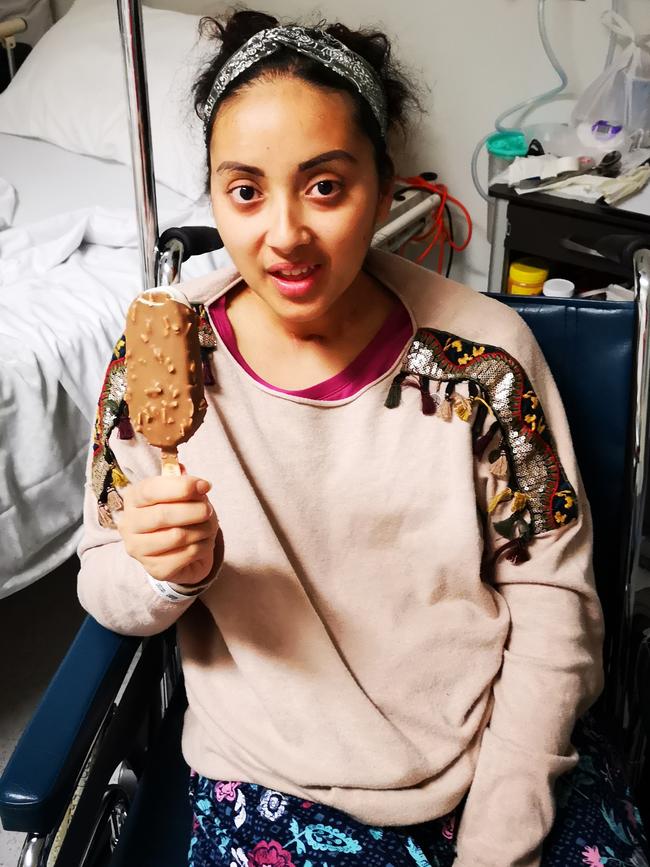
Nataya can only remember random parts of her life.
Her short-term memory is most affected at the moment, so recalling becoming conscious is difficult.
“It took me more than two months,” Nataya said. “I remember some faces, but I can’t remember the names.
“It was scary because Bruno showed me when I was in ICU … but now it is OK.”
It was six weeks after Nataya first fell ill that doctors were able to confirm what had happened to her.
Auto-immune encephalitis, a disease only discovered 12 years ago and of which still little is known, had wreaked havoc on her brain.
Described as feeling like your brain is on fire, auto-immune encephalitis causes its victims’ immune systems to inexplicably attack healthy brain cells, leading to inflammation. Steroids can stop the damage but the longer it takes to diagnose the more damage there is.
And, because it mimics many other conditions, including dementia, delirium or psychiatric illnesses like psychosis and schizophrenia, it almost always takes too long to diagnose.
Dr Mastura Monif, of the Monash Central Clinical School and The Alfred, is leading the world’s first major study of the condition, though Nataya may still have lost up to 90 per cent of her long and short-term memory.
“In a way you could say she was fortunate to be in this country, but at the same time her short-term memory is badly impaired,” Dr Monif said.
“By the time she got to The Alfred there was some delay and she was in ICU for a long time.
“How much of that will recover is difficult to tell. I don’t imagine she will recover to the baseline level, but it will just be a matter of time.
“She basically needs somebody there 24 hours a day which, for a young person, is a very big change to her quality of life.”
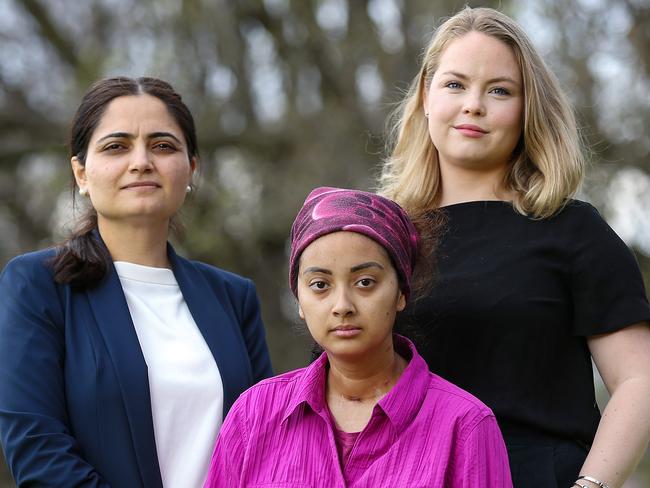
Visa complications meant it took weeks for Nataya’s parents to be at her bedside.
Since then, they have seen her regain many physical abilities, learning to eat, stand and talk.
On a huge cocktail medications that cannot be sustained for long,
Nataya last weekend reached three weeks without a seizure.
“Now she has improved a lot. She is walking,” Bruno said.
“Memories? It is difficult to know.
“Sometimes she can remember something that happened one week ago, sometimes she says, ‘This morning we went here,’ but that was actually three days ago.”
Attention moved to working out how to get Nataya home, where it is hoped more of her memory and former personality may return.
Too ill for a commercial flight, a medevac aircraft staffed by specialist nurses was booked to leave Melbourne at 4pm last Sunday, flying to Paris via Bangkok.
The $39,000 flight is another massive cost to Bruno, who has so far only been supported by $13,000 raised through a GoFundMe page.
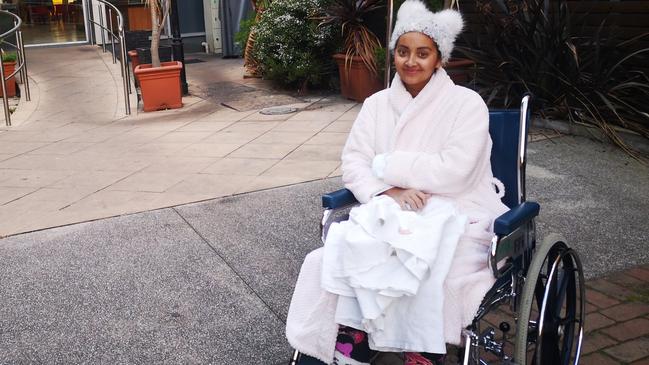
Planning to spend a fortnight settling Nataya into a Paris hospital, where doctors’ first action is to reduce her seizure medication, Bruno will then return to Australia to pick fruit so he can pay off the most pressing $10,000 debt.
Speaking as she prepares for the flight, Nataya is pleased to be going home, particularly knowing there is medical support on the plane.
“I am very happy about this (flight home) because I see my parents and my grandma,” Nataya said.
“I want to get on the flight because I can sleep easily.”
MORE NEWS
NAME AND SHAME THREAT FOR DEFIANT PRIESTS
MAGISTRATE, FIANCEE LEAVE EX-PARTNERS SHATTERED
PREDATORY TEACHER STOOD DOWN FROM RMIT
But if it is painfully hard for Nataya to answer questions about her past, it is simply heartbreaking to ask her about her future.
“The future? This is a good question,” she said.
“I will stay in my parents’ home but after that I do not know.”
As always though, Bruno is close by to offer more hope.
“Even if she forgets everything, we will start again.”
Go to gofundme.com/f/supportnataya to help with Nataya’s medical expenses.
